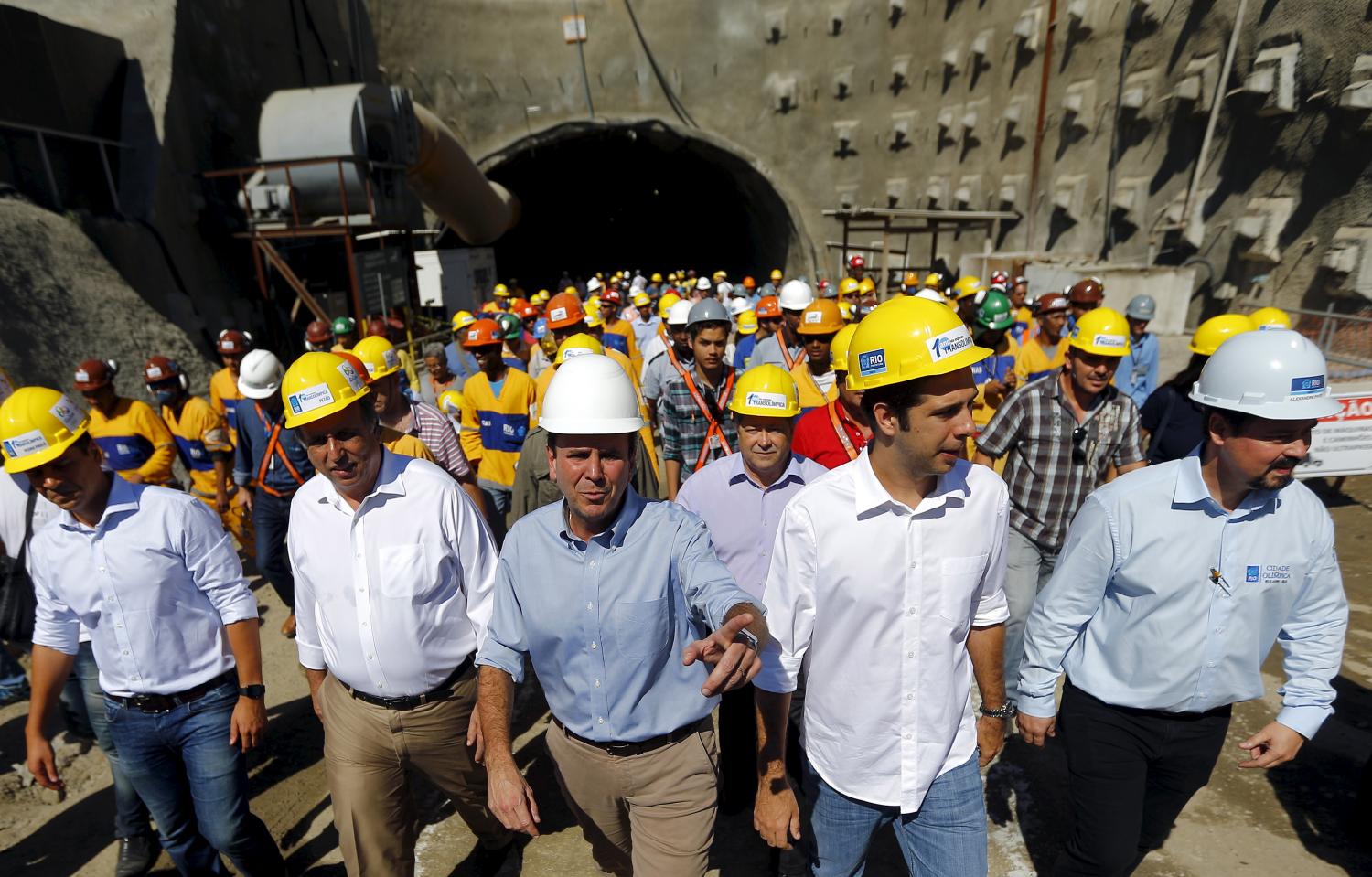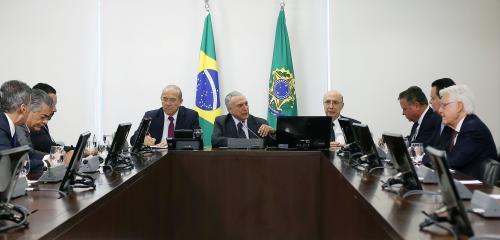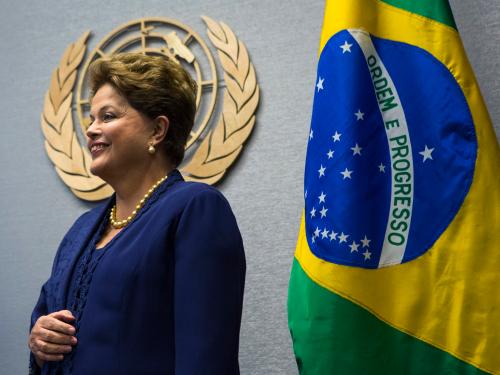In these days when Brazil’s politics are in turmoil and its economy is in the doldrums, it is all too easy for Brazilians to dismiss their country’s decision to host the Summer 2016 Olympics as part and parcel of the same package of bad policy decisions that landed them in their present predicament. The steady drumbeat of negative coverage about Rio’s unpreparedness to host has made more than one international observer wonder if the International Olympic Committee made the right choice.
Nevertheless, it is important to recall what hosting the Olympics signified for Brazil at the time that Rio de Janeiro submitted its bid in 2007. For the administration of then-President Luiz Inácio Lula da Silva, hosting the 2016 Summer Olympics (and the 2014 World Cup) was a marker of Brazil’s success as an emerging power. A decade-long commodity boom powered above-average economic growth, allowed Brazil to accumulate unprecedented foreign currency reserves, substantially expanded the size of the middle class, and dramatically reduced poverty. As the eighth largest economy in the world in 2008, Brazilians had reason to want to showcase their country’s success to the world.
But hosting the Olympics represented more than merely a desire to highlight Brazil’s (then) success at home. As we show in our new book “Aspirational Power,” it was also part of a longrunning Brazilian goal for their country to join the ranks of major powers. And during the past decade, Brazil thought it had finally arrived. Under the Lula administration, Brazil’s diplomatic presence expanded across Africa and the Caribbean and Brazilian diplomats took the helm of the World Trade Organization and Food and Agriculture Organization of the United Nations. Brazil worked to transform the BRICS (Brazil, Russia, India, China, South Africa) into more than a marketing label awarded by an investment bank, but rather into a club of emerging powers that worked together to reform the international order. And Brazil sought a permanent seat on the United Nations Security Council, a privilege currently held by only five countries (China, France, Russia, United Kingdom, and United States).
The Olympics were a particularly appropriate venue for Brazilian leaders to showcase what in 2007 looked like a remarkably successful story of emergence. Brazil is fortunate to live in (and have shaped) a peaceful neighborhood in which modest amounts of hard power are sufficient to secure national sovereignty. It has instead come to emphasize soft power as the foundation of its international influence. Soft power is the ability to attract support: Other governments and peoples come to support your country’s international policies because they admire you and want to emulate you. Successfully hosting the world’s largest celebration of peaceful athletic competition was a perfect fit with how Brazil would like to be perceived by the world and with how Brazil would prefer the international order to function.

Relaunching Brazil’s aspirations on the global stage
As the 2016 Rio Olympics begin, it is true that the factors that powered Brazil’s emergence a decade ago have faded. The end of the commodity boom has not only undermined Brazil’s emergence, but also has undercut the rise of other members of the BRICS whose cooperation Brazil had counted on. Brazil’s domestic crisis has undermined its soft power internationally by eroding the attraction of Brazil’s model. And the vast corruption scandal associated with Petrobras tarnished its political and economic elites and institutions.
Nevertheless, Brazil’s interest in a favorable and stable international order endures. And Brazil’s aspirations for an influential global role go hand in hand with restoring prosperity and strengthening institutions at home. In the very short run, the presidential impeachment process, deep recession, and ongoing corruption investigations hurt Brazil’s soft power. But properly handled, the resolution of this crisis can contribute to restoring the luster of Brazil’s domestic model, showcasing the strength of its democratic institutions, preserving (as much as possible) the social and economic gains of recent times, and adding a successful model for fighting corruption. And despite the negative international coverage preceding them, the 2016 Olympics are likely to turn out better than expected: International attention will soon turn to the prowess of the athletes and the beauty of the Games’ setting in Rio.
Even in this difficult time, Brazil needs to engage with, rather than retreat from, the world in order to succeed.
Even in this difficult time, Brazil needs to engage with, rather than retreat from, the world in order to succeed. This means integrating into global value chains rather than remaining the most closed of the large economies. This means focusing on both trade facilitation and on freer trade with the other major world economies. It means putting Brazil’s domestic values—democracy, humanism, the peaceful resolution of conflicts—at the center of its international diplomacy, partnering with emerging democracies such as India and South Africa rather than the world’s autocracies. This does not mean turning its back on the important relationship it has with China, but there is also no reason to preferentially align with such a country on a wide array of global issues simply because both countries are major trading partners.
As Brazil recovers, it should think creatively of how to once again expand the use of its successful development assistance model abroad, as it has already done in Africa. And it would benefit from using its hard power, its military forces, to generate additional soft power by expanding its role in leading key international peacekeeping operations around the world, as it has in Haiti.
This is an ambitious international agenda for Brazil, in line with the aspirations that shaped its original bid to host the Olympics in 2007. This is an agenda that the world’s great democracies, such as the United States, should welcome. But it will also benefit Brazilians. If their country accomplishes all this, it will be much more deeply embedded in the global rule making process that shapes the functioning of the international order, and it will be much harder for the major powers to ignore Brazil’s interests as they collectively bargain over the future. This will in turn help Brazil contribute to a positive global order that supports prosperity and democratic stability at home.







Commentary
The 2016 Rio Olympics: Will Brazil’s emergence get a second wind?
August 1, 2016